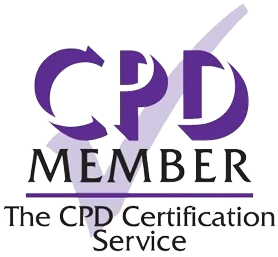28 Mar 2025
Recommended
Minimum 30 mins
Course
Access
Certification
Voiceover

Suicide and self-harm are critical public health challenges that demand awareness, sensitivity, and proactive action. The Suicide and Self-Harm Awareness and Prevention course equips healthcare professionals, social care workers, and community support personnel with the knowledge and skills to identify, prevent, and respond effectively to individuals at risk.
Drawing on the latest UK guidelines and evidence-based practices, this course delves into the psychological, social, and environmental factors contributing to suicide and self-harm. Participants will learn to recognise warning signs, apply intervention strategies, and create a supportive, non-judgmental environment. Special focus is given to communication techniques, therapeutic approaches, and referral pathways, ensuring comprehensive care for individuals in distress. Additionally, the course addresses the emotional impact on healthcare providers and emphasises the importance of self-care.
By the end of this training, participants will have a deeper understanding of the complexities surrounding suicide and self-harm, enabling them to foster a culture of prevention, compassion, and support in their professional and community roles.

 £25
£25
Learning Outcomes.
By the end of this course,participants will be able:
To recognise the warning signs and behavioural indicators of suicide and self-harm.
To understand the risk factors, including mental health conditions, social circumstances, and environmental triggers.
To implement effective communication strategies to engage with individuals at risk.
To apply intervention techniques, including de-escalation and referrals to specialist services.
To foster a supportive, non-judgmental environment for individuals experiencing suicidal ideation or self-harming behaviours.
To understand the legal and ethical responsibilities of healthcare professionals in suicide and self-harm prevention, in alignment with UK protocols.
Course
Contents.
01
Definitions, common myths, and the importance of awareness in professional settings.
03
Identifying behavioural and clinical indicators, conducting assessments, and communicating effectively.
05
Cognitive Behavioural Therapy (CBT) and other evidence-based practices for managing at-risk individuals.
08
Implementing prevention programs and early intervention plans in community settings.

06
Multidisciplinary approaches, legal responsibilities, and ethical considerations.
09
Addressing the emotional impact of supporting individuals in crisis, with tools for professional support and resilience.
02
Exploration of psychological, social, and environmental contributors, with an emphasis on high-risk populations.
04
Developing care plans, safety measures, and early intervention techniques.
07
Guidance on assisting bereaved families, handling distress, and providing resources.
10
Applying de-escalation techniques, ensuring timely referrals, and fostering non-judgmental interactions.
This course equips healthcare and social care professionals with the tools to recognise, prevent, and respond to risks of suicide and self-harm. Participants will gain evidence-based skills in intervention, communication, and prevention while fostering resilience and a supportive culture in their workplaces and communities.
 Summary
Summary


